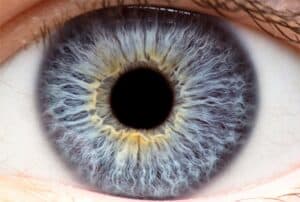
The cornea is the transparent, convex shield that protects the eye’s pupil and iris. It plays a key role in ensuring sharp vision by focusing incoming light on the retina. If the cornea is misshapen or becomes damaged, your eyesight will lose its clarity. Here, Bay Area cornea and LASIK specialist Mark Mandel, MD reviews several conditions that can affect the health and integrity of your cornea.
Corneal Dystrophies
Corneal dystrophies involve accumulation of opaque material in the cornea. The severity can vary widely with this condition, and may involve a high level of pain. There are over 20 different types of inherited dystrophies that can harm the cornea.
In one variety, Fuchs’ dystrophy, loss of the internal corneal cells called the endothelium causes swelling of the cornea. This leads to blurred vision that progressively worsens. Granular dystrophy involves the accumulation of material in the internal portions of the cornea. This interferes with vision and is sometimes painful.
Keratoconus is a condition where the middle part of the cornea thins and begins to bulge. The resulting cone-shaped cornea cannot precisely focus light on the retina. The condition can also cause scarring and swelling.
Patients who suffer from progressive keratoconus face the prospect of gradually dimming vision, as well as multiple corneal transplant surgeries to replace a thinning, cone-shaped cornea. One new treatment option, corneal crosslinking, repairs the cornea by hardening the collagen fibers within the cornea so that it does not continue to thin and bulge and scar. Corneal crosslinking will typically not reverse the effects of keratoconus, but it is the only proven technique for stopping its progression.
Other Risks
Keratitis is a painful infection that causes inflammation and can scar and otherwise damage the cornea. Treatments depend on the exact cause and range from antibiotic or cortisone eyedrops to corneal transplants in severe cases.
Dry eye syndrome is another chronic condition that can damage the cornea. The eye’s meibomian glands secrete oils that keep tears from evaporating quickly. When these glands stop working properly, the fine layer of moisture on the eye’s surface dissipates, resulting in less protection for the cornea.
If you would like to know more about ways to ensure a healthy cornea, we encourage you to schedule a personal consultation with Bay Area cornea and LASIK specialist Mark Mandel, MD. Contact Optima Eye by emailing us or calling 510-886-3937 today.